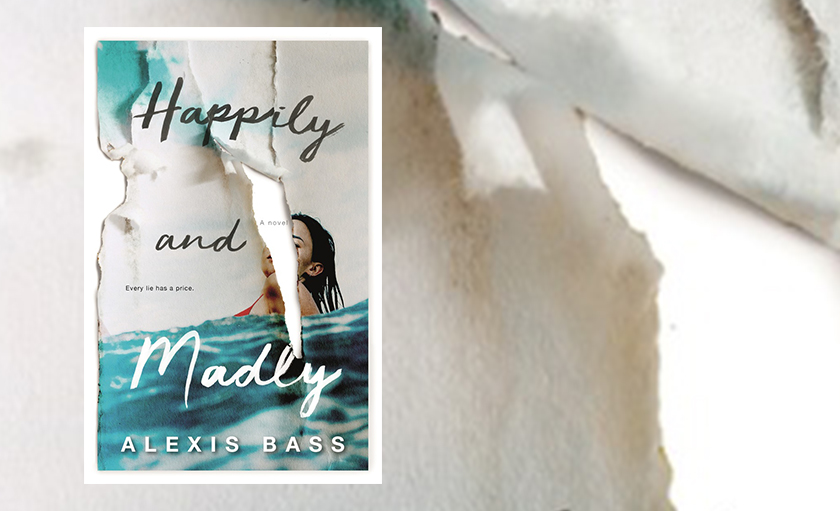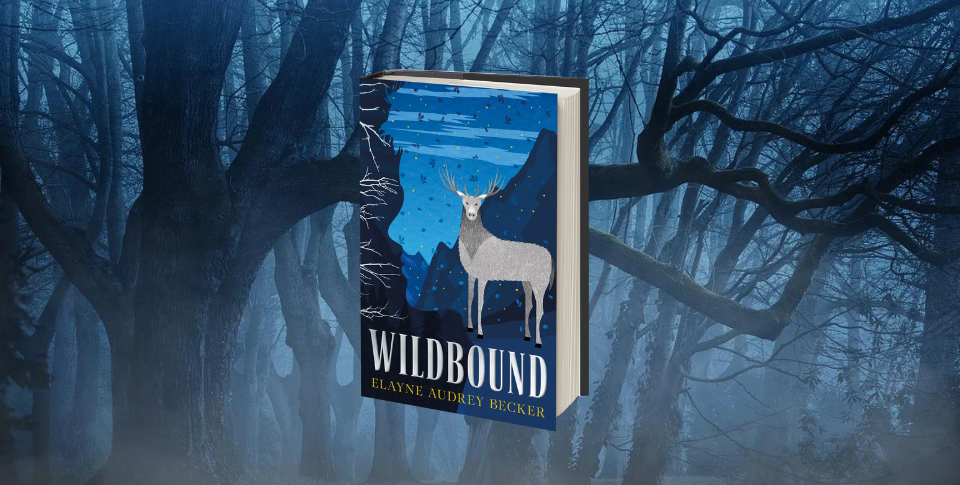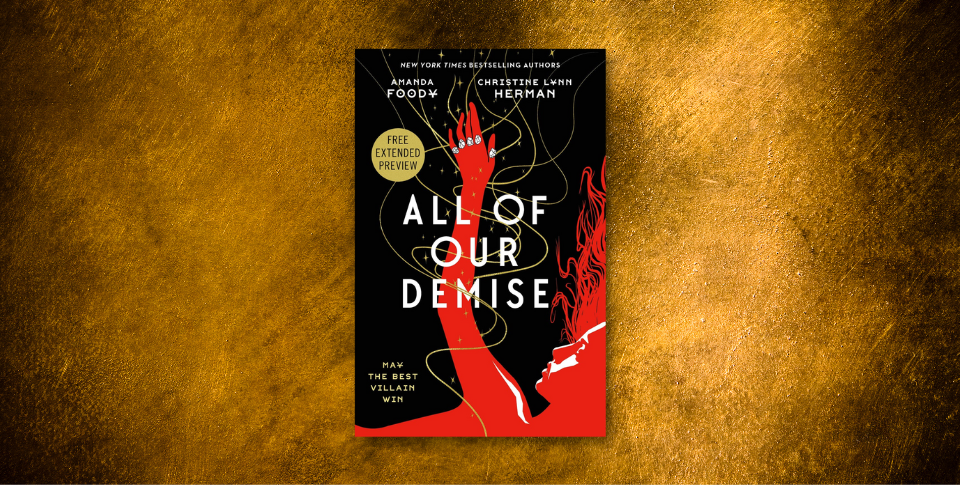
Alexis Bass’ Happily and Madly is a mature, twisty, compulsively readable YA suspense novel about a young girl who embraces a fate bound in love and mystery.
Maris Brown has been told two things about her destiny:
- She will fall happily and madly in love.
- She could be dead before she turns eighteen.
The summer before that fateful birthday, Maris is in the wealthy beach town of Cross Cove with her estranged father and his new family–and the infamous Duvals. Since the youngest member of the Duval family, Edison, is back from college and back in the arms of Maris’s new stepsister, her summer looks to be a long string of lazy days on the Duval’s lush beach.
But Edison is hiding something. And the more Maris learns about him, the more she’s given signs that she should stay as far away from him as possible. As wrong as it is, Maris is drawn to him. Around Edison, she feels truly alive and she’s not willing to give that up. Even if it means a collision course with destiny.
Chapter 1
 [dropcap type=”circle”]T[/dropcap]he New Brown Family is portrait perfect. They are each seamless in their own way. They look alike even though they are patchwork pieces of different families, strung together not by DNA but by true love.
[dropcap type=”circle”]T[/dropcap]he New Brown Family is portrait perfect. They are each seamless in their own way. They look alike even though they are patchwork pieces of different families, strung together not by DNA but by true love.
George is the father. He is tall and broad-shouldered, carrying some weight in his stomach the way men his age are inclined to do. His hair is rich in color, speckled with gray, but still there, full and thick enough for him to run his fingers through and, according to him, that is what matters. Trisha is the mother. A thirty-six-year-old who looks exactly her age, despite the new-mom short-bob haircut, with blond hair and grown-out roots, and large breasts, which she always covers, but are still the second thing you notice about her, after her kind smile. Chelsea is the oldest daughter. She just turned eighteen. She looks like Trisha except smaller, with long, luscious hair and tan skin and the glowing radiance of being a daughter by choice instead of by circumstance. Phoebe is the baby, a perfect pink package that gurgles and coos. She is a bundle of spit-up and potential. The most basic definition of love child.
The four of them stare back at me smiling as they stand in the airport terminal holding a handwritten sign, something probably done last night over a table covered in Magic Markers and glitter and glue, while eating cookies and sipping on lemonade.
“Welcome, Maris!”
I don’t look like them. I do not have a smile for every occasion. I do not glow. I am a daughter entirely by circumstance. Baggage from George’s first marriage. Nothing about me is beautiful or precious, and my shadow is the first thing you would notice.
It is only my third time seeing the New Brown Family in the two years since they have been in existence, but I hug each of them, tell them, “I’ve missed you, too.” I only pretend to hug George. They all hug me back, except Phoebe, who, at only ten months old, maybe isn’t old enough to entirely grasp the concept of an embrace. She stares at me with eyes too big for her face and lips pursed in a grin—familiar lips on a familiar grin. We have the same mouth, courtesy of George. I note familiarity in her eyes, too. And her chin. When she laughs, I’m relieved that the sound is altogether alien. She and I will never know the same kind of joy.
“We’re so happy you’re spending the summer with us at Cross Cove!”—they all say this to me, but in different ways.
They are lying.
The New Brown Family would like to be the kind of family that’s effortlessly welcoming. A family that can extend itself to sustain the debris of George’s past. But that is the one thing they are not.
“Me, too,” I say back. I would also like to be effortlessly welcoming. I would like to be able to mold and fit; for my absence to be a real vacancy in their lives; for our reunions to feel like a relief. The kind of daughter that meant it when she said, “Congratulations,” to a tuxedo-clad George with birdseed in his hair after he exchanged vows with Trisha last year. A girl who had happy tears in her eyes the first time she held her brand-new baby half sister in her arms instead of tears of fear. Someone who felt lucky to have been gifted a stepsister three months older than she is, with whom she may have a lot in common, other than a shared father now that the adoption has been official, making us all the Browns.
We walk together, staggered in a row on our way to baggage claim, and I give them a smile that I wish were genuine.
“This summer is going to be different,” George told me on the phone before I came.
And it is sure to be. But not in the way he thinks.
This summer is designed to give my mother a break, though neither George nor my mother is saying that. They say: What a great opportunity to reconnect with your father. And: It’ll do you good to get out of the desert and feel that New England ocean breeze.
They are right in some ways. My relationship with George could use some resuscitation. And I did need to get out of Phoenix, where I was getting boxed in by the sun and the heat and by the general monotony of having lived in the same place for my entire life.
“So what’s it like there?” my mother asks over the phone as I unpack. I’ve been gone a whole ten hours, and her voice already sounds considerably lighter.
Chapter 2
She doesn’t really want to know about Cross Cove, how it’s both charming and vast, exquisite and picturesque; a few hours from the closest city, but still with that feeling of being far removed. About the sizable beach house right on the water George has rented. The kind of money he never spent on us. The kind of money we didn’t know he was up for spending.
I glance around my summer bedroom, full of white furniture, a bright blue comforter on the bed, seashell and lighthouse décor on the walls and on the dresser. A big picture window that probably will light up the whole room when the sun rises.
“It’s nice,” I say and leave it at that. Me coming out here was her idea, which says volumes since even though it’s been around two years since she found out that George had been cheating on her, and that not only was he was leaving her to marry the woman he’d been seeing, he was also expecting a child with that woman, she still cries about it sometimes and she never says their names. For a long time, she could barely get out of bed. George left both of us for the New Browns, but he is still legally obligated to me.
“And everything’s okay? With George and . . . everyone?” I think it really might be physically impossible for her to say their names.
“Yup.” I zip up my suitcase now that it’s completely unpacked and shove it under the bed. “Everything will be fine, Mom. I’ll make the best of it.”
“And you’re not talking to Trevor, right?”
“No, of course not.”
“I’m serious, Maris. He’s not good for you. He’s not someone you need in your life.”
I’ve told her the truth about not speaking to him, but I don’t blame her for not believing me.
Besides, it’s easiest for her to blame everything that’s happened on my ex-boyfriend Trevor, who is older and consistently smells like weed and always drove too fast down our residential street, because he never did care if my mother liked him or not. Trevor doesn’t hide that he knows how good-looking he is, and he wears his ego on his sleeve. When I didn’t come home at night, I was usually with him. When I skipped classes, I was usually with him. He’s the one I was with when I got caught vandalizing the new spring training stadium on a dare that sounded like the exact right amount of risky at the time it was proposed. He was absent from the hospital the night he wrecked his car, and I had to be rushed to the emergency room for what turned out to be two broken ribs. And it was his party favors that got me arrested that second time.
My only defense is that I tried hard to keep all the fun we had a secret and did everything behind my mother’s back. It wasn’t hard for a while, when she started taking the night shifts at the hotel because she was too sad after George left to face the bustle of the day.
Sometimes my mother blames George, too, insinuating that I only started getting into trouble and hanging out with Trevor and his crowd after he left. But that was the crowd I chose, the ones who could keep up, the ones who weren’t going to tell me no. And Trevor was the one I chose, with his easy life and his fearless attitude. So now she’s put nearly three thousand miles between Trevor and me and placed me back with George. Her cure-all.
George blames Trevor, but he blames my mother more. I can see it in the way he looks at her. He yelled at her in the hospital that day after the car accident, “Where were you when she started going off the rails?” and my mother screamed, “Where were you?”
They both left me for a while, but in different ways.
On the phone, I tell my mother everything she wants to hear, needs to hear; that I’m done with Trevor. That I’m content being here with the New Brown Family, even George. That I’ve had enough with adrenaline highs and risky ventures. Fast cars and fast boys. Dares and challenges and never backing down.
“Good,” she says, pausing to sigh, probably out of relief. “Good.” “You don’t have to worry,” I tell her before we say goodbye. When I hang up with my mother, Chelsea knocks on the door
connecting my bedroom to the bathroom that adjoins our rooms, and I wonder if she’s been listening. She doesn’t wait for me to say, “Come in,” before she enters.
“The fireworks will be starting soon.” Her smile fades when she sees that I am not smiling back. I don’t know if she is afraid of me and will avoid me the best she can this summer, or if we are going to continue being uncomfortably polite to each other, like we usually are. “You have to see them. I hear the fireworks are magic here; they light up the entire sky, the entire cove.”
“That’s okay,” I say at first. I’m still used to retreating around them. “I mean, yeah, I’ll come.” Because this is a new summer in a new place, with a new family, too, sure, but it is still mine, and why would I ever want to miss a fireworks show that’s just been described as magical?
A bright smile invades her whole face. She waits for me to find my sandals, and we walk out together.
I follow her down the stairs, all the way to the back of the house, and out the kitchen door. We walk through a screened porch where Trisha is sitting, rocking Phoebe and feeding her a bottle, with George seated next to her, his arm acting as her headrest. We go down a short flight of stairs, landing in sand dotted with beach grass. I can hear the sound of the ocean in the distance, and we continue down the path until the beach grass disappears and there’s a beach stretching in front of us, leading to a low tide and the bay. Chelsea flounces toward the water like it’s effortless, but I find that the sand is heavy and hard to walk through. I try to remember the last time I was on a beach, walking on sand. I was fourteen, and my mother and I had accompanied George on a business trip to Florida. He worked the entire time. He never came to the beach with us. He never sat like this, content in the quiet with my mom, the way he’s sitting with Trisha and Phoebe.
Chelsea and I get closer to the water, and the sand turns hard and wet and easier to walk on.
Chelsea’s out of breath. “This is Cross Cove,” she says, motioning to the horseshoe-shaped shore surrounding us. The cove is uneven. On our side, the houses are low, right on the beach, but as it curves, a cliff starts, growing taller and steeper as it inches around the cove. The houses get larger and larger and more and more removed from their beaches below. They are etched in the cliff, their open windows like hundreds of lanterns.
“You’ve been here before?” I ask.
“No, but I’ve always wanted to come here. Ever since I heard about it, I’ve dreamed of spending a summer here. Mom and Dad wanted to go somewhere tropical, like the Bahamas or Hawaii. But I convinced them.” She points straight ahead. “That’s the Duval summer estate.” I let my gaze follow her direction, though all I can really make out are a few white lights. “That’s where my boyfriend lives over the summer. His name is Edison.” She gives me this lush, giddy smile.
And the truth comes out—the real reason she chose this spot for our summer vacation. I can see her begging George, probably even saying, “Please, Daddy,” in a way that never would’ve worked on him if I’d said it. The girls of the New Brown Family have him wrapped around their fingers, where my mother and I were stuck butting heads with him.
“Congratulations,” I say in response to both her wealthy boyfriend and that she managed to convince George to spend the two months of his collected vacation out here.
Chelsea laughs, which I hadn’t expected. “I am so lucky,” she says—no hesitation in her voice. In a way, I like that she owns this—she has a boyfriend with a large cliff-side summer mansion, and she is absolutely not ashamed that this is part of what she likes about him, enough that he was one of the main reasons she talked her family into coming out here, when they could have gone anywhere. “He’ll be here in a few days, when he gets back from London.”
I remember vaguely hearing about Chelsea’s boyfriend attending some prestigious international university when I’d visited the New Browns in December, four months after Phoebe was born. I’m surprised they’ve lasted this long, given his distance. Trevor was all about the here and now and would’ve forgotten about me in a week if there was an ocean between us. He’s probably already started to forget, already started replacing me with summertime girls who find his aloofness a refreshing quality.
She points to the curve in the cove. “The Covingtons live there. They have the deepest beach, so they do the fireworks show every night.” She blushes, like she gets that I’m wondering how she knows about this. “It’s not a secret,” she says with a shrug.
Generations of families have summered here, she claims. She regales me with the tale of Edison’s family, a rags-to-riches story, in which the eldest Duval cashed in all his chips to start his business in the ’60s, and how it grew and doubled, then tripled, then quadrupled. She reminds me that she grew up poor; no winter coats, too-small boots, canned beans for breakfast, lunch, dinner, before George, until George. Her father and mother were high school sweethearts, but he died in a car accident shortly after she was born. George is the only father she’s known, she says.
“I want to spend every summer here,” she says, her eyes alight in a way that makes me jealous. This place—the dream of this place and the idea of it—are what feed her and fuel her. This is what makes her feel alive; this is all it takes. It seems such a simple and shallow thing to cherish, but at the same time, I can’t fault her for wanting the things she has always believed to be out of her reach.
“Sounds nice,” I tell her.
There’s a loud popping noise that I can feel in the base of my stomach, and the sky ignites in a shower of red and blue and green lights.
“Isn’t it beautiful?” Chelsea asks. Her head’s tilted back and the colors from the fireworks streak across her face. She looks alive, relaxed, happy—every part of her; free.
“Yes,” I admit, staring up at the sky.
There’s something unnerving and exhilarating about being here, surrounded by the beaches and that cliff with windows looking down on us, the bay like a moat between us, the waves ridged and high in the distance.
“I think it will be a good summer,” Chelsea says. I nod. I’m thinking, It has to be.
Copyright © 2019 by Alexis Bass







